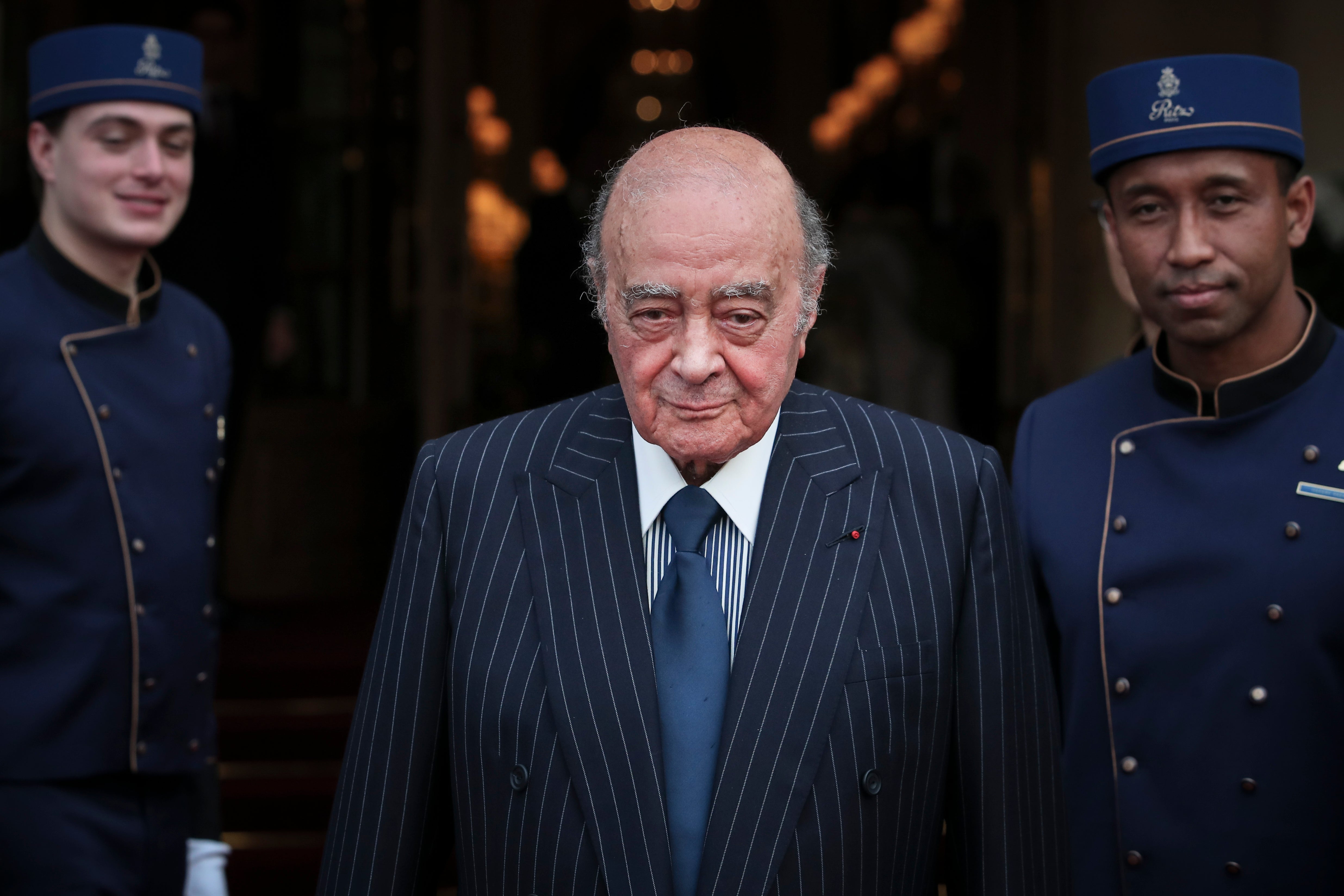Fayed’s vile behaviour underlines our Brick by Brick campaign message that women everywhere must be protected
Editorial: A secure place of refuge is the beginning of a long journey of recovery and restitution for the traumatised. It is a cause well worth backing

The words of Bruce Drummond KC, a leading lawyer in the field, could scarcely have been more disturbing: “This is one of the worst cases of corporate sexual exploitation that certainly I – and perhaps the world – have ever seen.” Mohamed al-Fayed, the billionaire businessman, used to portray himself as a rather kindly, paternal figure. When his son, Dodi, died – alongside Diana, Princess of Wales, in 1997 – there was much public sympathy for the owner of Harrods, a man who had become a national figure.
Yet the reality that lurked behind the “gentleman” who asked his young female staff to call him “Papa” was bleak indeed. As Mr Drummond put it: “It was absolutely horrific. I cannot stress that word enough – it was horrific. It’s horrific because of the acts carried out against these young women and girls – and I say girls, because most of them were only 19 to 24 at the time, and some were as young as 15 and 16. It’s horrific because the system – and it was the system – that procured them was enabling the abuse of these young women.”
In many ways, the revelations about Fayed conform to the all-too-familiar pattern that emerged during the #MeToo movement. There is the same deception and manipulation; the same abuse of power; the same use of the law to cover up the shameful events; and the same callous disregard for the victims. Most of all, there are the institutional failures that meant that the organisations involved closed ranks to defend their reputations – and the criminal justice system failed the victims, time and again.
We have witnessed it in the corporate world, the police, the entertainment industry, political parties, religions – even in the legal system itself. In a moving interview with The Independent, Cherie Blair, a barrister, testifies to her own depressing experiences within the criminal justice system, indicative of the struggles so many women face virtually alone.
She herself was pushed down the stairs by a domestic abuser while she was representing his vulnerable victim; she also describes her guilt after another client was killed by her abusive partner after returning home because she had nowhere else to go.
The Fayed case has much in common with previous scandals involving Harvey Weinstein, Jimmy Savile, Jeffrey Epstein, and many others (known and unknown). It is a further reminder of how, even now, after decades of progress towards equality and so much campaigning for the rights of women and children, the abuse goes on.
There is so much more work to be done – and it is encouraging that the home secretary, Yvette Cooper, is making good on the Labour manifesto commitment to halve violence against women and girls over the next decade. Dedicated domestic violence specialists in every emergency call centre should represent the first step towards achieving the necessary protection and justice.
Ms Cooper is delivering on another promise, to enact “Raneem’s Law”. It will be a historic piece of legislation, as there has never before been a law specifically driven by the scourge of domestic violence. Indeed, in past years the police were infamously unwilling to attend what was referred to as a “domestic”.
That attitude prevailed, tragically, when Raneem Oudeh and her mother Khaola Saleem, who were murdered by Raneem’s ex-husband in 2018, appealed for help. There were 13 reports made to the police about Raneem’s safety, with no arrests made. On the night she was killed, she rang 999 four times. That is why changing the culture in the emergency services is so crucial.
That cause is also why The Independent has joined with the charity Refuge and the building firm Persimmon with an appeal to raise £300,000 for a purpose-built place of safety for women and children fleeing an abusive partner. The Brick by Brick appeal aims to raise funds with a notional donation of £15, sufficient to purchase one brick – though more generous gifts are of course very welcome.
The likes of Fayed and other well-known faces may well be the monsters that their victims say they are, but there are many other monsters wreaking psychological and physical harm on those they are supposed to be caring for. A secure place of refuge is the beginning of a long journey of recovery and restitution for the traumatised. It is a cause well worth backing.
Please donate now to the Brick by Brick campaign, launched by The Independent and charity Refuge, to help raise £300,000 to build a safe space for women where they can escape domestic abuse, rebuild their lives and make a new future. Text BRICK to 70560 to donate £15
Anyone who requires help or support can contact the National Domestic Abuse Helpline, which is open 24/7 365 days per year, on 0808 2000 247 or via its website
Join our commenting forum
Join thought-provoking conversations, follow other Independent readers and see their replies
Comments
Bookmark popover
Removed from bookmarks